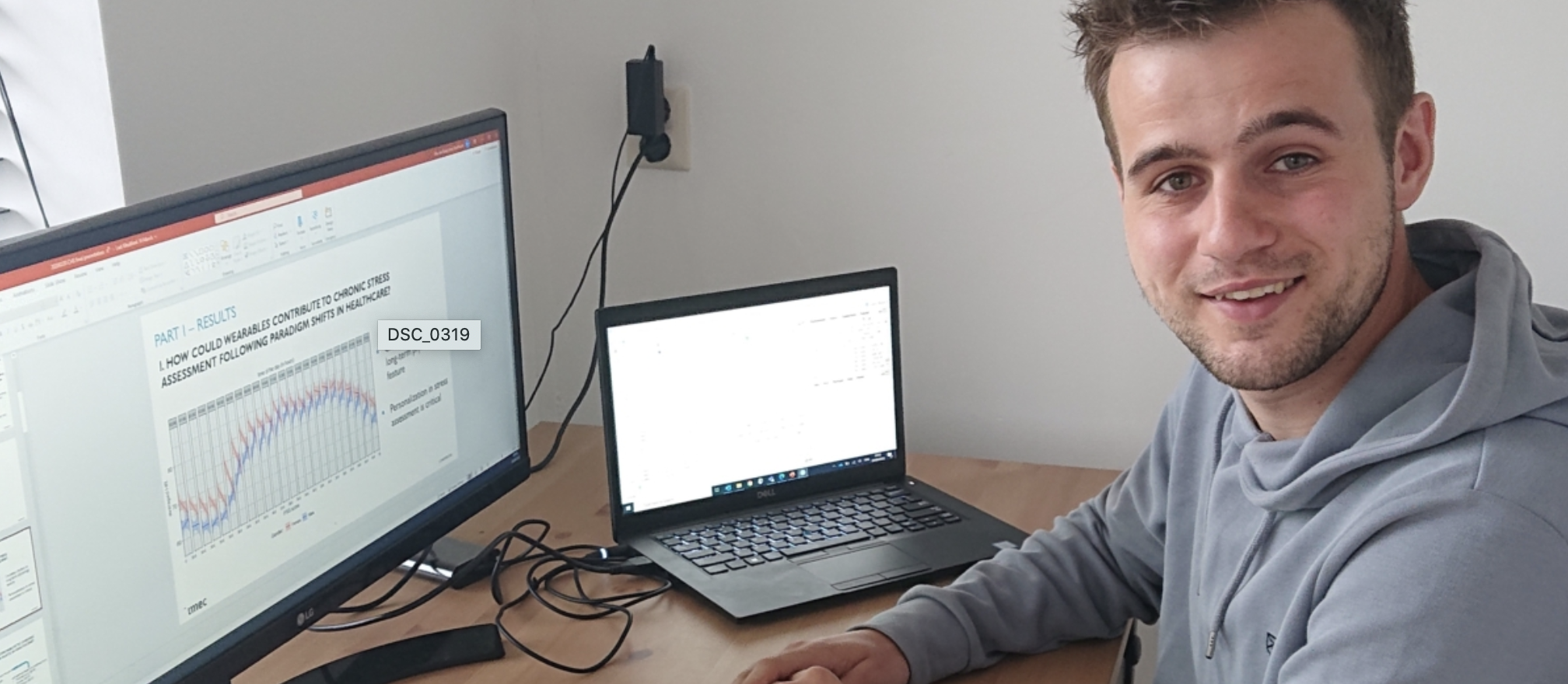Alex van Kraaij is a Biomedical Engineer at OnePlanet Research Center. A few months ago, he graduated from Radboud University and now we can congratulate him on his very first publication. Let’s read what his new achievement is all about.

Publication: Relationship Between Chronic Stress and Heart Rate Over Time Modulated by Gender in a Cohort of Office Workers: Cross-Sectional Study Using Wearable Technologies.
“I looked at how heart rate changes over the day and concluded an interesting difference between genders.”
Congratulations with your publication! Can you tell us more?
As part of my master’s degree in Medical Biology at Radboud University, I have been doing my graduation internship at imec in Eindhoven last year. I’ve researched the relationship between chronic stress and heart rate, also called circadian heart rate. Mainly, I looked at how heart rate changes over the day and concluded an interesting difference between gender. With chronic stress the heart rate increases during the day for men, while the heart rate of women decreases. The follow-up of this study is in the field of chronic stress management. In other words, how can a care provider draw up a personalized treatment plan to relieve stress for a patient, based on these research insights? The publication is all about this research study. A number of colleagues, like Giuseppina Schiavone, Chris van Hoof and Erika Lutin, from imec and OnePlanet Research Center, supervised me and reviewed the article. Prof. Stephan Claes, an external psychiatrist at UZ Leuven, also helped in reviewing the results of the research.
Can you tell me something about the Journal of Medical Internet Research?
The article was published in The Journal of Medical Internet Research. This is one of the largest journals in the field of digital health. They also feature several sister journals, all of which are dedicated to healthcare and how technology can contribute to it. Think of subjects such as eHealth, software, wearables, etc. What I notice more and more often in their publications, are topics related to mental health care and personalized care. Our research and publication clearly contribute to those themes.
Do you continue your publication related research at OnePlanet Research Center?
In a way yes. I’m contributing to a project called DynaMORE, a project about dynamic modelling of stress resilience. That project is about the content of my thesis, yet it’s separate. DynaMORE is a European project, which was already in progress at the time of my thesis. Imec, one of the founding fathers of OnePlanet, provides the wearable to measure the physiological response of stress (Chill+ band) and takes care of the feature extraction of the data. Across Europe, several universities and medical centers are participating in the research. They all conduct their own research measurements for a period of one month. Afterwards, the data is brought together and processes in order to develop a personal treatment plan for each participant. Subsequently, participants are measured and analyzed for another month, to see what the results are.
“What if … we can collect all the data we need to truly measure and get all in sights in order to help people reduce stress? ”
What if… you could contribute to a futuristic, visionary solution to the benefit of society, what would it be?
Alex: What if … we can collect all the data we need to really measure and gather all insights needed in order to help people reduce chronic stress? Not only heart rate, but also emotions and internal body processes. We would be able to predict chronic stress and help everyone reduce it – or even prevent it – in a very personalized way, because we know exactly what that person needs.